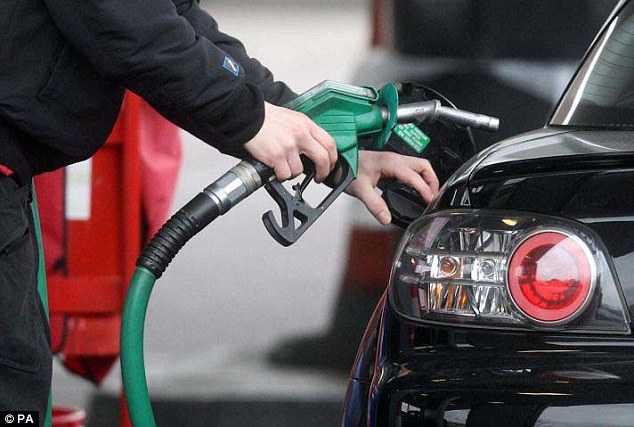Franchising, retail, business

31/12/2015
Britain's 'Big Four' supermarkets - Asda, Morrisons, Sainsbury's and Tesco - are all knocking 2p a litre off their petrol and diesel, with the reductions taking effect from tomorrow.
Asda was the first to announce its fuel price cut but it wasn't long before the other major supermarkets announced matching price cuts.
The cuts will mean Asda customers will pay no more than 107.7p a litre for petrol and 114.7p a litre for diesel.
The latest price cut marks the thirteenth time since September that Asda has reduced fuel prices since the end of September taking, in total, 19p a litre off petrol and 15p a litre off diesel.
Asda's petrol trading director, Andy Peake,said: ‘We're pleased to be giving drivers some early new-year savings.’
The latest Morrisons price cut marks the sixth time it has dropped prices since December 1.
The AA said: 'The UK average price for petrol is currently around 113p per litre and these welcome decisions on making further price cuts will eventually filter down in some form to other retailers.
'So the UK average price will fall further as we enter 2015. However, just how far it falls is anyone's bet. Current indications are that the magical £1-per-litre average price across the UK is still looking unlikely in the short term.'
The RAC was more confident of the £1 figure being achieved.
RAC head of external affairs Pete Williams said: 'These further cuts will certainly bring extra cheer for motorists for the new year.
'With record lows in the price of a barrel of crude oil, it is encouraging to see retailers passing on those savings to their customers.
'These latest cuts are also another step towards the very real prospect of a £1-per-litre average price in January, as predicted by the RAC in December, which really would guarantee a happy new year for millions of motorists in 2015.'
Meanwhile, Asda's chief executive Andy Clarke predicted a 'challenging year' ahead for the supermarket sector.
Mr Clarke said he had never seen profitability in the sector fall so quickly as he had this year.
He told BBC 5 live's Wake Up to Money, that discount grocers had had a striking impact on retailing.
'The level of profitability decline in some retailers over the course of 2014 - we've never seen it before,' said Mr Clarke. 'It suggests 2015 is going to be equally as challenging.'
The latest round of fuel cuts come as the price of oil fell to new five-and-a-half-year low today, falling to $56.92, its lowest level since May 2009.
The price of Brent Crude oil has now fallen by more than 50 per cent since September.
Petrol prices in the UK have fallen sharply since autumn, with the cost per litre now down to 113.9p on average, according to petrolprices.com.
The last time litre of petrol was below £1 was May 2009. The first time a litre of petrol rose above £1 on average was November 2007.
AA figures show that petrol prices reached their highest average level this year in July at 131.7p - in mid-November the average price was 122.9p.
Market analysts say lower demand from China - the world's second largest oil consumer - as a result of slowing factory output and continuing high production levels are the main reasons for the continued fall in the oil price.
Production in Libya coming fully back online in the summer has also had an impact on the oil supply.
The fall in oil price is contributing to lower inflation in the UK and eurozone, removing any pressure there might have been on the Bank of England to raise interest rates next year, while at the same time piling pressure on the European Central Bank to take further monetary policy action - probably by buying government debt - to avert deflation in the eurozone.
The oil price is now well below $77 a barrel, the price most Opec nations can tolerate for a sustained period of time to maintain a balanced budget.
Opec member Venezuela is already beginning to suffer economically with the country's president Maduro echoing accusations made by Russian president Putin that the US is engaging in an 'oil war'.
Today it emerged the Venezuelan economy was in recession.
The country's central bank said the economy shrank 2.3 per cent in the third quarter of 2014. That followed falls of 4.8 per cent and 4.9 per cent respectively in the first and the second quarters of 2014.
Russia in particular believes the US is putting pressure on Saudi Arabia - the largest OPEC member - to maintain current levels of oil production to push oil p[rices lower, while increasing oil supply at home be ramping up shale oil and gas production.
But oil prices have fallen to such a low level that US shale oil production, as well as smaller US 'mom and pop' oil wells - which usually produce around one or one barrels of oil a day - have started to become unprofitable.
Both Russia and Venezuela depend heavily on tax receipts from oil production to maintain a functioning government.
Earlier this week, official figures showed the Russian economy shrank 0.5 per cent in November compared with the same month a year earlier. The Russian economy is expected to fall into recession early next year as a result of continuing low oil prices, which contribute a significant amount to economic growth, and continuing Western sanctions for the country's involvement in the conflict in eastern Ukraine.
During his end of year presidential press conference earlier this month, president Putin said it may take two years for the Russian economy to recover.
Fonte:http://www.thisismoney.co.uk/money/news/article-2892255/Asda-offers-motorists-New-Year-s-gift-cuts-fuel-prices-oil-price-falls-50-just-four-months.html?ITO=1490&ns_mchannel=rss&ns_campaign=1490